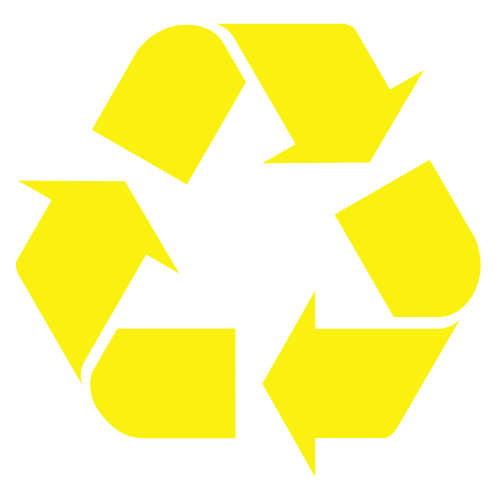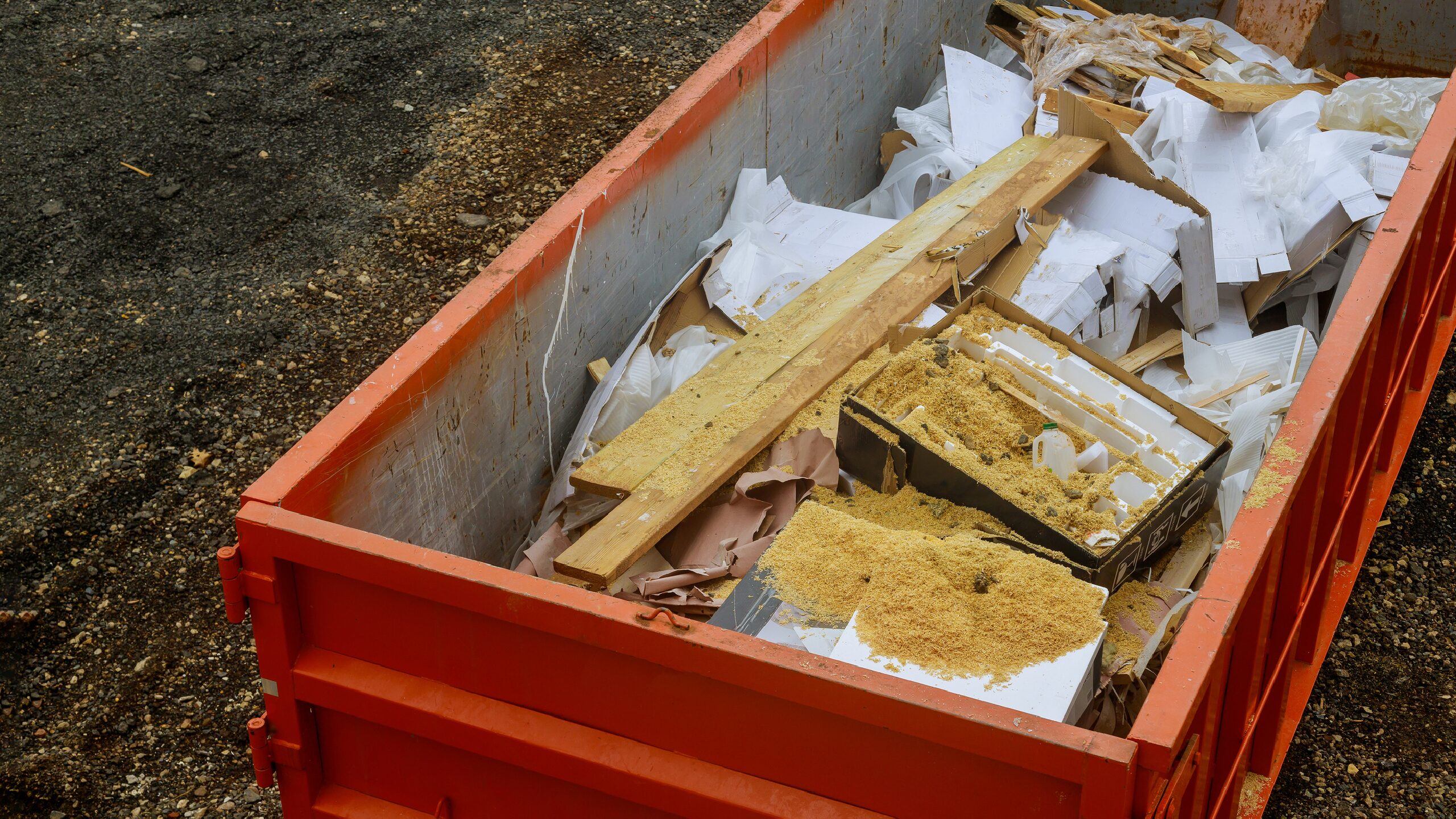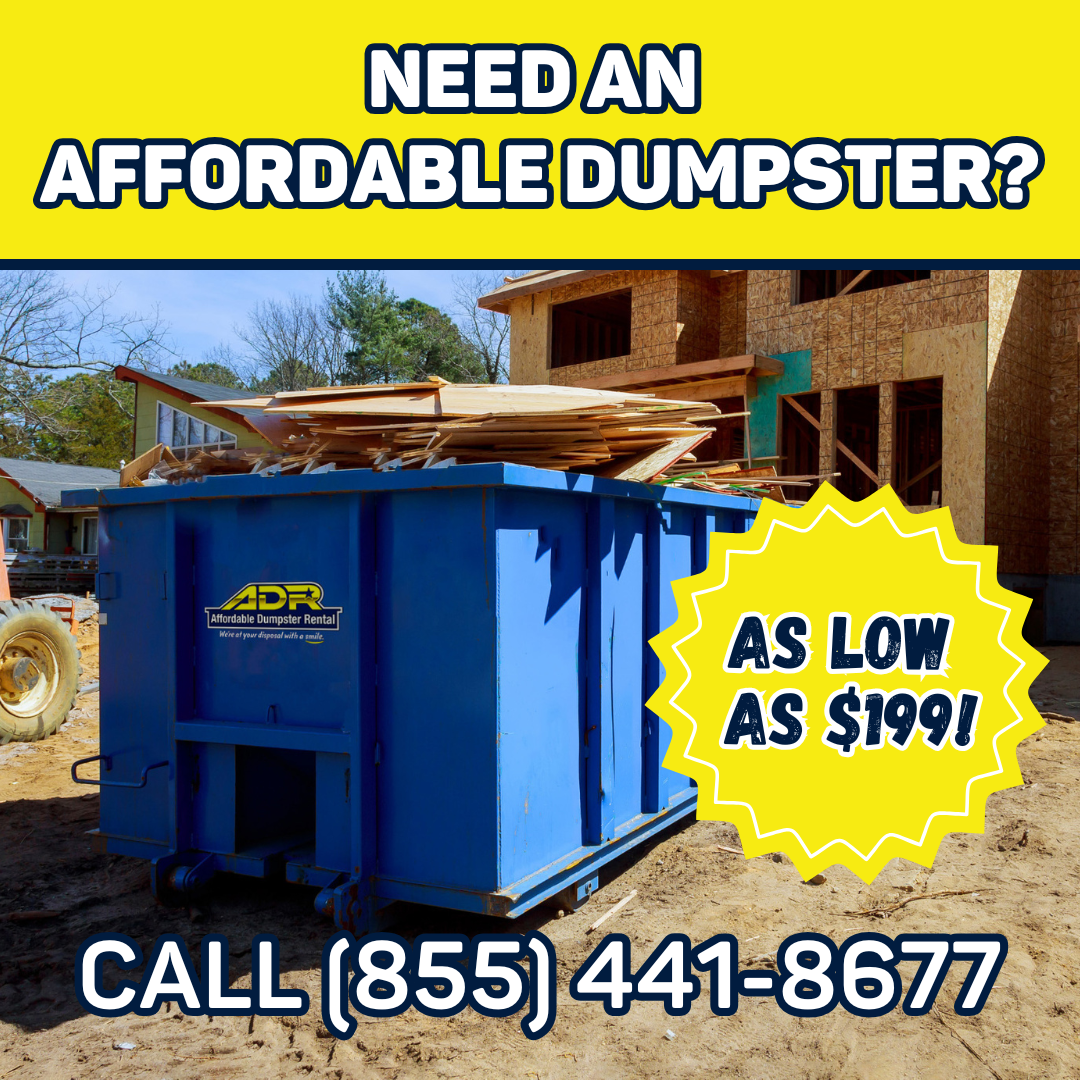


When it’s time for a big cleanout or renovation, renting a dumpster is one of the easiest ways to handle debris and clutter. Whether you’re clearing out your garage, remodeling your kitchen, or cleaning up after a storm, a roll-off dumpster rental can save you countless trips to the dump and keep your project organized. However, not everything belongs in a dumpster. Certain items can cause serious harm to the environment, endanger sanitation workers, or even lead to fines if disposed of improperly. Knowing what you can—and can’t—throw away is key to a smooth cleanup. Here’s your complete guide to the top 10 items you should never throw in a dumpster and what to do with them instead. Paints, varnishes, and stains contain chemicals that are considered hazardous waste. When dumped, these materials can leak into soil or water supplies, contaminating the environment. Even dried-out paint cans can still cause problems if they contain residue. What to do instead: Batteries might seem small, but they pack a powerful chemical punch. Many contain heavy metals like lead, mercury, and cadmium that are toxic to humans and wildlife. What to do instead: Tires don’t decompose easily, and when buried in landfills, they can trap gases that cause them to bubble to the surface. Plus, they take up a lot of space in dumpsters and can damage equipment. What to do instead: Appliances that contain Freon or other refrigerants must be disposed of carefully. These chemicals deplete the ozone layer and are highly regulated under federal law. What to do instead: From TVs to laptops to microwaves, electronics contain materials that can be toxic if they end up in a landfill. Throwing them in a dumpster also wastes valuable metals and parts that could be reused. What to do instead: Cleaning products, pesticides, pool chemicals, and automotive fluids are all considered hazardous. These materials can react, explode, or leak dangerous fumes when combined in a dumpster. What to do instead: Needles, syringes, medications, and other medical waste pose serious health risks. They can injure waste handlers or contaminate the area if disposed of improperly. What to do instead: Even empty propane tanks can still hold residual gas under pressure, which can explode when punctured or crushed. This makes them extremely dangerous for standard waste disposal. What to do instead: Flammable and toxic, car fluids like motor oil, brake fluid, and antifreeze should never be tossed into a dumpster or poured down drains. Just one gallon of motor oil can contaminate a million gallons of water! What to do instead: Asbestos was once common in insulation, flooring, and roofing materials. If your home was built before the 1980s, it may still contain asbestos fibers, which are extremely dangerous when disturbed. What to do instead: While not always illegal, these items can cause extra fees or complications: When in doubt—ask! Affordable Dumpster Rental is always happy to help you determine what’s allowed in your roll-off container. Proper disposal isn’t just about avoiding fines—it’s about protecting your community and the planet. Hazardous materials can pollute water, harm wildlife, and release toxic fumes when incinerated. By taking a few extra steps, you’ll: At Affordable Dumpster Rental, we’re committed to making waste disposal simple, transparent, and environmentally responsible. When you rent a dumpster with us, we’ll walk you through exactly what can and can’t go in your container—so you can focus on your project with peace of mind. Whether you’re handling a home renovation, estate cleanout, or yard debris removal, we’ve got the right dumpster size and service for your needs. 👉 Call Affordable Dumpster Rental today or request a free quote online to find the best disposal option for your project.
1. Paint, Stains, and Solvents 🎨
✅ Check if your local waste facility offers hazardous waste drop-off events.
✅ Many paint retailers—like Sherwin-Williams or Benjamin Moore—accept leftover paint for recycling.
✅ Latex paint can often be dried out and disposed of safely (check local regulations first).
2. Batteries 🔋
✅ Recycle single-use and rechargeable batteries at hardware stores or recycling centers.
✅ Car batteries can often be exchanged for a recycling credit when you buy a new one.
✅ Never throw lithium batteries in a dumpster—they can spark and cause fires.
3. Tires 🚗
✅ Many tire shops and recycling centers accept old tires for a small fee.
✅ Some local recycling programs host tire collection days.
✅ You can even repurpose old tires for creative landscaping projects or playgrounds.
4. Refrigerators, Freezers, and AC Units ❄️
✅ Contact your local waste management service to schedule a certified appliance pickup.
✅ Some utility companies offer rebates for turning in old appliances.
✅ If Freon has already been safely removed, metal recycling centers may accept the unit.
5. Electronics (E-Waste) 💻
✅ Drop off electronics at an e-waste recycling event or electronics store.
✅ Donate working items to charities, schools, or shelters.
✅ Many manufacturers have mail-back recycling programs.
6. Hazardous Chemicals ☣️
✅ Store them safely until your city’s hazardous waste collection day.
✅ Call your local environmental agency for disposal instructions.
✅ Never pour chemicals down the drain or onto the ground—it’s both unsafe and illegal.
7. Medical Waste 🩹
✅ Pharmacies often provide sharps disposal containers and medication drop boxes.
✅ Contact local hospitals for safe medical waste collection programs.
✅ Never throw used sharps or prescriptions in the regular trash or dumpster.
8. Propane Tanks and Fuel Containers 🔥
✅ Exchange or recycle your old propane tank at refill stations or hardware stores.
✅ Contact your local fire department for guidance on safe disposal.
✅ Never throw any pressurized container in a dumpster.
9. Automotive Fluids and Oil 🛢️
✅ Bring used oil and fluids to auto shops or designated collection sites.
✅ Store fluids in leak-proof containers until disposal.
✅ Ask local garages if they participate in oil recycling programs.
10. Asbestos and Contaminated Materials ⚠️
✅ Hire a licensed asbestos abatement professional for inspection and removal.
✅ Never attempt to remove or dispose of asbestos on your own—it’s illegal in many states.
✅ Contact your local environmental authority for approved disposal options.
Other Items to Avoid Throwing in a Dumpster
Why Following These Rules Matters
✅ Keep your cleanup safe and eco-friendly
✅ Avoid unexpected dumpster fees or rejected loads
✅ Help your local recycling programs thrive
Rent Responsibly with Affordable Dumpster Rental
Dumpster Delivery on YOUR schedule


Recent Posts